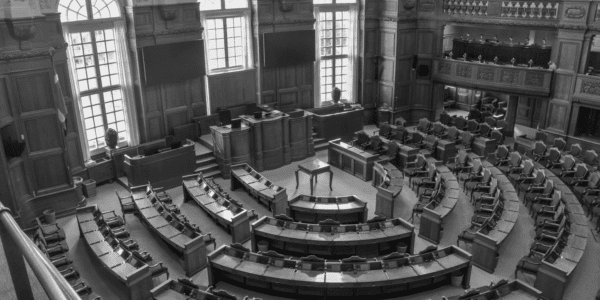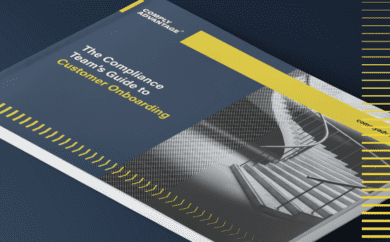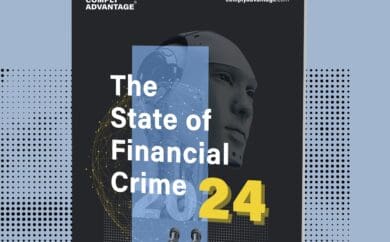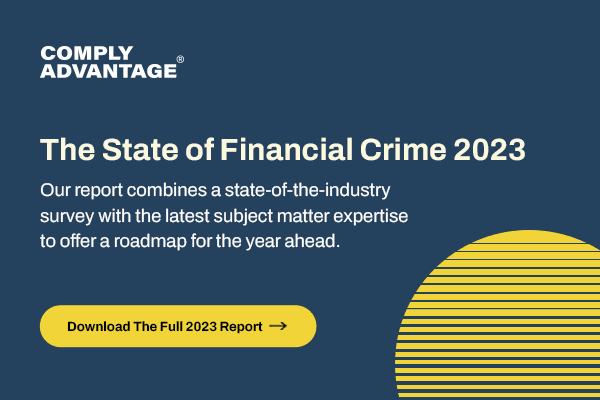 Featured
Featured
To address violations of international law, human rights abuses, and other forms of state-sponsored crime, governments may impose economic sanctions against designated targets around the world. Sanctions cover a range of financial restrictions and prohibitions and are often deployed to achieve foreign policy objectives through economic pressure. They may present a way to resolve geopolitical conflicts or avoid military interventions. Typical sanctions measures include:
- Trade and investment prohibitions
- Import and export embargoes
- Asset freezes
- Travel prohibitions
Since they are financial measures, the effectiveness of sanctions depends on the capability of the issuing country to enforce them. Accordingly, countries that impose sanctions must also issue sanctions lists containing the latest designated targets and implement sanctions compliance regulations on persons within their jurisdiction, with the threat of criminal penalties for violations.
Given the prevalence of sanctions across the modern geopolitical landscape, banks and financial institutions must understand their compliance obligations and which restrictions apply within their jurisdiction.
What are UN sanctions?
The United Nations issues the UN Security Council (UNSC) Consolidated Sanctions List, which sets out the names of its designated global sanctions targets.
- The UN Consolidated Sanctions List applies to all member-states of the United Nations and is organized into a list of sanctioned individuals and sanctioned groups and entities.
- The UN Security Council composes the sanctions, each backed by a UN Security Council Resolution.
- UN sanctions are passed when a majority of the UNSC votes in their favor. The UNSC is made up of 5 permanent members (US, UK, France, China, and Russia) and ten non-permanent members on rotation.
- The UN has no direct legislative power within member-states, so it falls to domestic legislative authorities to enforce UN sanctions.
In practice, UN sanctions are imposed for three types of behavior: violations of international law, threats to international peace, and violent activity within state borders. While a majority vote passes sanctions, any of the five permanent UNSC members may veto their application. This system often leads to a lack of UN action: following Russia’s invasion of Ukraine in February 2022, Russia exercised its veto power to block UN sanctions against it. Similarly, China has blocked sanctions against the Myanmar government for its treatment of the Rohingyas. When UN sanctions are successfully imposed, enforcement of the relevant measures is handled by member states.
Find out more about UN sanctions.
What are EU sanctions?
As a central European governmental body, the EU issues and implements a range of financial sanctions against global targets:
- The EU Council implements UN Security Council sanctions along with its autonomous sanctions set out in the EU Consolidated Sanctions List.
- All individuals and entities within the European Union’s 27 member states must observe EU sanctions and comply with the sanctions list.
- EU sanctions also apply to all EU citizens operating anywhere in the world.
- The EU enforces some sanctions directly through EU law, but some measures are delegated to the domestic legislators of member-states.
EU sanctions are issued under the Common Foreign and Security Policy’s authority (CFSP) to promote the EU’s democratic values, preserve global peace, and protect international law. The EU’s sanctions regime has evolved since its inception: in May 2019, the EU introduced a cyber-crime sanctions regime, and in December 2020, a Global Human Rights Sanctions Regime (GHRSR) which specifically targets human rights abuses.
The EU also has a Blocking Statute. This legal measure prevents EU persons from complying with extraterritorial (secondary) sanctions imposed by third countries. As stated, EU sanctions enforcement falls to member state governments rather than a centralized authority, and member states also control the penalties imposed for sanctions violations.
Find out more about EU sanctions.
What are US OFAC sanctions?
The Office of Financial Assets Control (OFAC) maintains many sanctions programs on behalf of the United States Treasury:
- OFAC implements and enforces the international sanctions issued by the United States government.
- OFAC sanctions lists include the Consolidated Sanctions List and the Specially Designated Nationals (SDN) List.
- All individuals, banks, and financial services institutions within US jurisdiction must comply with OFAC sanctions.
- OFAC issues ‘comprehensive’ sanctions which are targeted against countries, and ‘non-comprehensive’ (or ‘selective’) sanctions which are targeted at specific individuals or entities.
The US sanctions regime is arguably the most influential in the world. Since the US shares many geopolitical, economic, and security concerns with other Western nations, its sanctions programs typically align with those of the UN, the UK, and the EU. In 2016, the US introduced a dedicated human rights sanctions program under the authority of the Global Magnitsky Act: the program allows the US government to specifically address global human rights abuses by targeting the individuals and groups responsible for those crimes rather than entire countries. The Magnitsky Act has since inspired the development of similar human rights sanctions regimes across the West.
The US Bureau of Industry and Security (BIS) is also part of the US sanctions regime. The BIS Entity List sets out the names of foreign persons subject to US licensing and sanctions requirements known as Export Administration Regulations (EAR). BIS sanctions typically regulate the export of dual-use goods that terrorists or oppressive governments may misuse.
In addition to its primary global sanctions, which apply directly to US persons, the US also implements secondary sanctions against third countries. Secondary sanctions essentially block foreign third parties from doing business with the targets of US primary sanctions – at the risk of trade restrictions with the US.
Find out more about OFAC sanctions.
What are UK HM Treasury sanctions?
HM Treasury maintains the sanctions list of the United Kingdom:
- The HM Treasury UK Sanctions List incorporates the consolidated UN and EU sanctions lists, along with the UK’s autonomous sanctions.
- All banks and financial institutions are forbidden from doing business with the countries and entities on the HM Treasury Sanctions List.
- British citizens and citizens of overseas territories are also subject to HM Treasury sanctions.
- The Office of Financial Sanctions Implementation (OFSI) is responsible for implementing and enforcing HM Treasury’s financial sanctions.
Since it left the EU in 2020, the UK has implemented an autonomous sanctions regime under the authority of the Sanctions and Anti-Money Laundering Act (SAMLA). Given its political alignment with other Western nations, the UK shares a lot of sanctions targets with the US, the UN, and the EU. Like the US, the UK has also implemented a human rights sanctions regime and implemented a Global Anti-Corruption regime in April 2021.
Find out more about HM Treasury sanctions.
What are Australia’s DFAT sanctions?
The Department of Foreign Affairs and Trade (DFAT) implements and enforces sanctions for the Australian government:
- The DFAT sanctions list incorporates the UN Sanctions List along with autonomous sanctions issued by Australia.
- All banks and financial institutions in Australia must comply with the DFAT sanctions list.
- DFAT sanctions also apply to all Australian citizens at home and abroad.
Australia’s autonomous sanctions regime is enforced under the Autonomous Sanctions Act of 2011. The regime reflects the foreign policy and security concerns and includes Magnitsky-style legislation to address foreign human rights abuses. DFAT coordinates sanctions enforcement with the Australian Sanctions Office (ASO).
Find out more about DFAT Sanctions.
What are Canada’s SEMA sanctions?
Canada’s global sanctions regime complements its UN obligations and includes a strong focus on human rights:
- Canada’s autonomous sanctions are imposed under the authority of the Special Economic Measures Act 1992 (SEMA) and the Justice for Victims of Corrupt Foreign Officials Act 2017 (JVCFO).
- Canada sets out a comprehensive list of designated sanctions targets in the Canadian Autonomous Sanctions List.
- Businesses in Canada may obtain licenses to trade with sanctions targets by applying to the Ministry of Foreign Affairs.
As the second-largest economy in North America, Canada’s sanctions regime is influential on a global and regional scale. The JVCFO Act reflects Canada’s foreign policy focus on human rights abuses. With that in mind, Canada has acted to impose sanctions against Russia following its annexation of Crimea and subsequent invasion of Ukraine. It has also imposed sanctions against Myanmar’s military regime.
What are Japan’s FEFTA sanctions?
Japan’s global sanctions regime is built on several acts of legislation. Primarily, it draws on the 1949 Foreign Exchange and Foreign Trade Act (FEFTA):
- FEFTA focuses on the trade of cross-border goods, services, and financial assets but also allows Japan to address foreign policy and international security concerns.
- FEFTA regulations are enforced by the Ministry of Economy, Trade, and Industry (METI) which deals with trade sanctions, and the Ministry of Finance (MOF), which deals with financial sanctions.
- While its sanctions regime aligns closely with the UN, Japan will, under certain circumstances, issue unilateral sanctions against foreign targets.
As a result of its ongoing aggressive posture in the region and its development of long-range nuclear weapons, North Korea is a significant sanctions target for Japan. Accordingly, Japan has enforced an import embargo on North Korea since 2006 and an export embargo since 2009. Japan’s government recently voted to extend its sanctions against North Korea for two years, meaning that current measures will remain in place until 2023.
In 2021, lawmakers announced a cross-party alliance to develop Japan’s Magnitsky-style human rights sanctions regime. The move reflects Japan’s desire to align more closely with the sanctions regimes of the West.
What are China’s MOFCOM sanctions?
As China’s economic status has grown, so has its ability to exert global influence. With that in mind, following its 2019 trade war with the US, China’s Ministry of Commerce (MOFCOM) announced that it would be implementing an autonomous sanctions program:
- MOFCOM’s sanctions program includes an Unreliable Entity List (UEL) which was introduced in 2020. Chinese persons are prohibited from doing business with the foreign companies included on the UEL.
- MOFCOM sanctions are enforced under the Foreign Trade Law (2016) and the National Security Law (2015).
- China also implemented an Anti-Foreign Sanctions Law in June 2021, sometimes referred to as the ‘Blocking Rules.’ The law prohibits Chinese persons from complying with third-party sanctions, such as the secondary sanctions imposed by the US.
China’s Blocking Rules were implemented in response to US secondary sanctions that prevent Chinese companies from trading with companies in North Korea and Iran. Chinese persons suffering financially due to their compliance with the Blocking Rules may be authorized to sue companies that do not comply.
Originally published 21 June 2014, updated 26 March 2024
Disclaimer: This is for general information only. The information presented does not constitute legal advice. ComplyAdvantage accepts no responsibility for any information contained herein and disclaims and excludes any liability in respect of the contents or for action taken based on this information.
Copyright © 2024 IVXS UK Limited (trading as ComplyAdvantage).



 EN
EN FR
FR